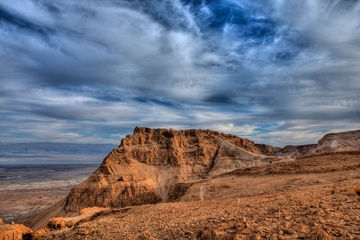TEL AVIV-JAFFA, Israel—It’s a Friday night. As Jews across the country are relaxing in their homes for Shabbat, Tel Aviv is in transition: tanned beach-goers have packed up their towels and paddle-ball games and returned to their hostels and apartments across the city for to prepare for the evening. Feeling slightly guilty for not exploring the city’s world-famous nightlife, I instead walk south along the beach towards the old city of Jaffa. To my right, the Mediterranean Sea calmly breathes in and out along the shore. To my left, fine sand stretches for a few blocks before turning into the rocky asphalt of Israel’s most developed city.
One hundred years ago, Zionist Jews began to build Tel Aviv just north of the Arab city of Jaffa. In the middle of the 20th century, the two cities officially joined together into Tel Aviv-Jaffa, an amalgamation of Jewish and Arab, old and new. At that time, Zionists viewed Israel as a land of peace, freedom, and liberation. When many Jews (including some in my family) imagined Israel as a country, it was as a workers’ nation, a socialist utopia. But the Tel Aviv-Jaffa of today is plagued by conflict over socioeconomic divisions and gentrification in Jaffa.
Back in Tel Aviv, the waves of the Mediterranean were lit an eerie purple as they reflected the colored lanterns of nearby bars. Behind the bars, luxury hotels and the office buildings of international financial firms stretched to the sky. But by the time I reach Jaffa, the bars have been replaced by small circles of Arab guys smoking hasheesh near the waves.
English teachers might describe this scene as liminal. I’m walking in between sea and land, between day and night, between Arab and Jewish. But one thing here is not in transition: the Tel Aviv of today is decidedly not a socialist workers’ utopia. Israel has adopted capitalism with fervor, and, for better or for worse, the financial firms and nightclubs of this city—and the way Tel Aviv’s economy has changed Jaffa—are not going away.


